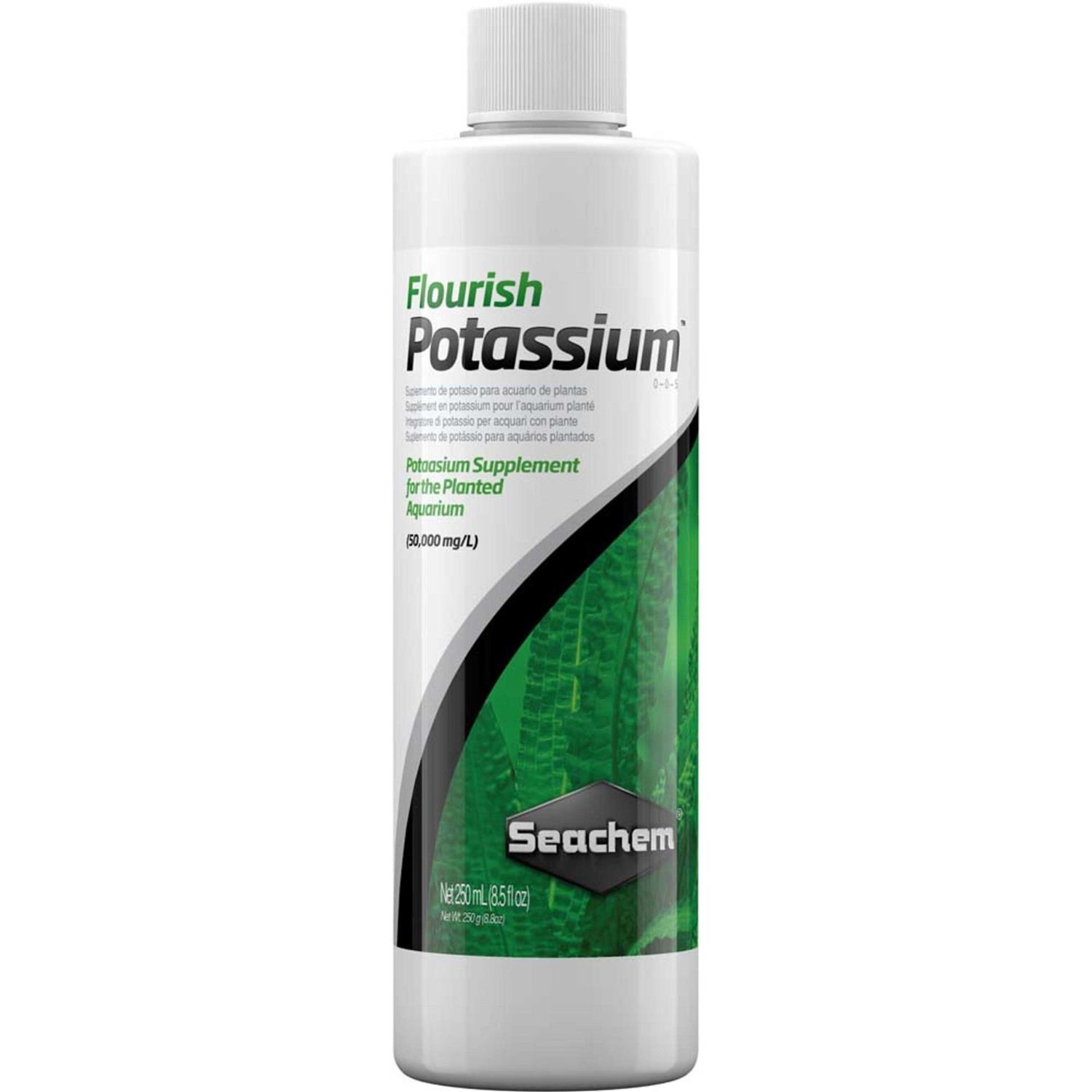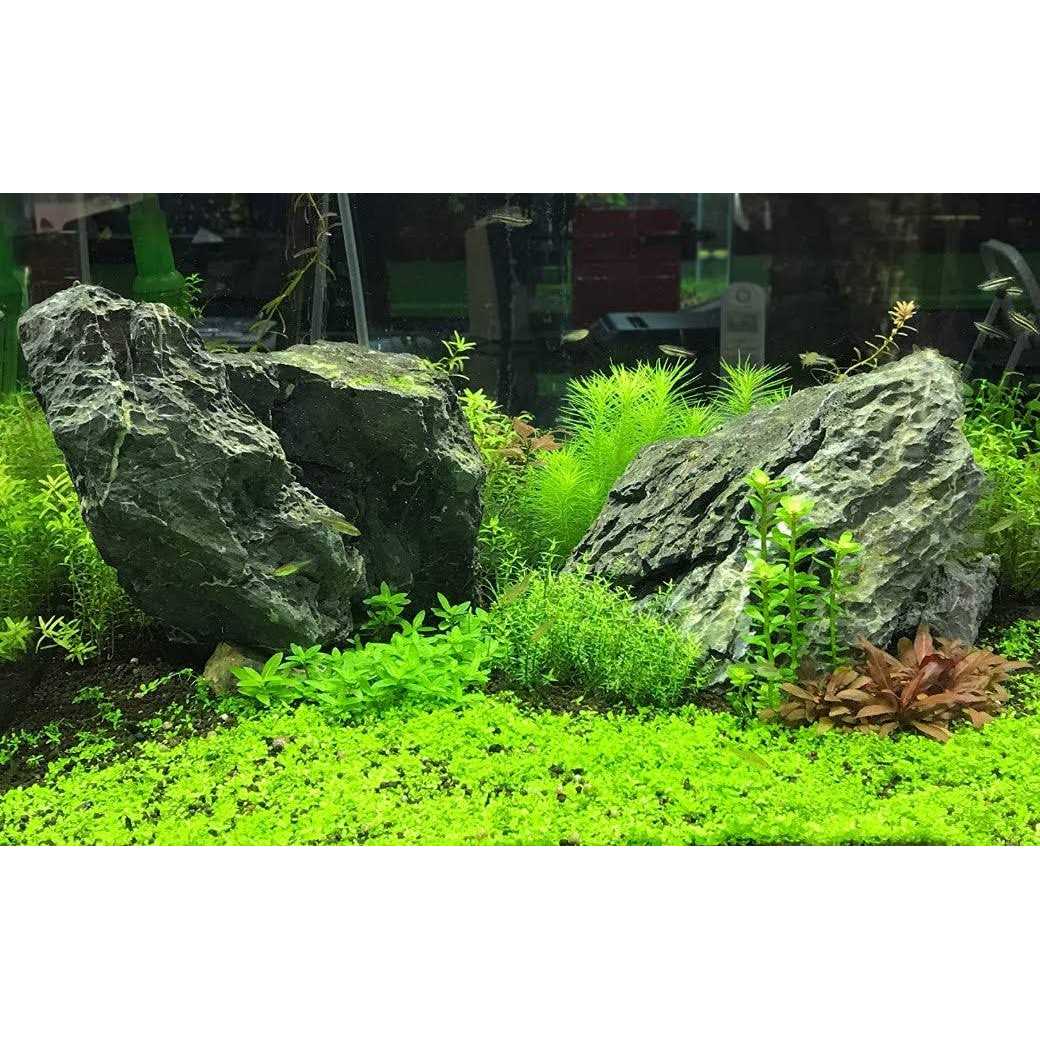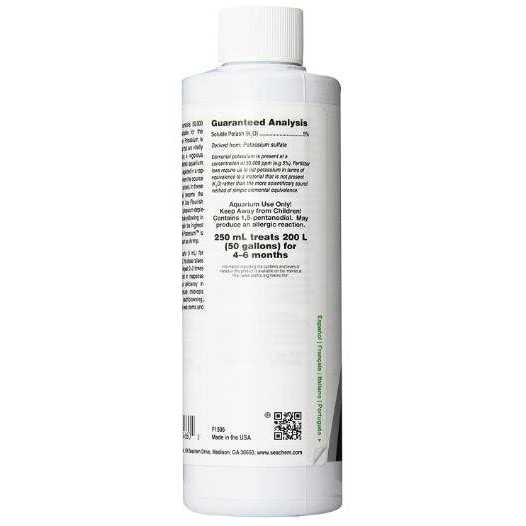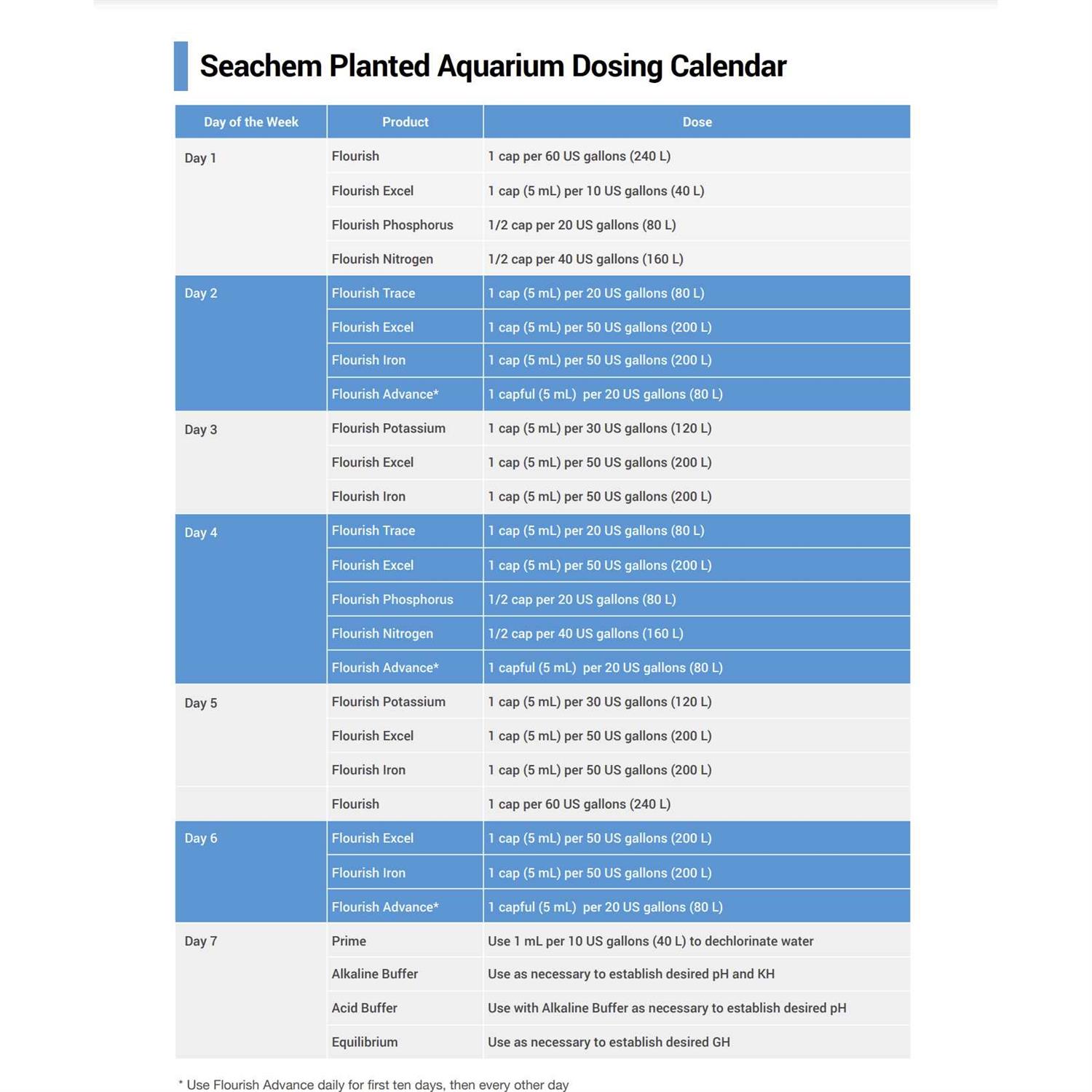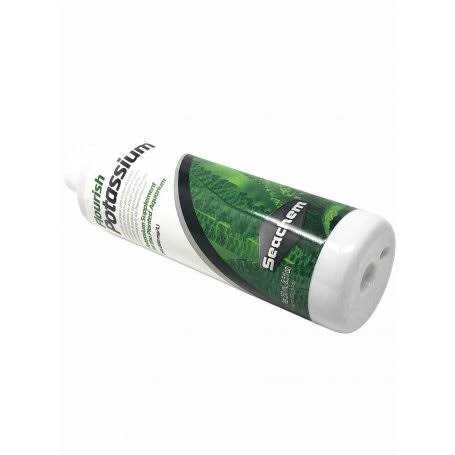Flourish Potassium Seachem
-
Detail
Flourish Potassium Seachem 250 ml
- Flourish Potassium contains 50,000 mg/L potassium suitable for the aquarium with natural plants.
- Flourish Potassium is derived from potassium sulfate, allowing the user to adjust potassium levels without affecting nitrogen or phosphorus levels.
- Potassium supplement for the aquarium with natural plants.
- With a high concentration (50,000 mg/L).
- Contains no phosphates or nitrates making it ideal for use with flourish nutrients.
- Instructions for use.
- Format, 100, 250 and 500ml.
- Soluble potassium (K2O) 5%.
Seachem Flourish Potassium Flourish Potassium contains 50,000 mg/L of potassium suitable for the natural planted aquarium. Potassium is one of several elements that are vitally important to maintaining a vigorous level of growth in a planted aquarium. Potassium can become depleted in a rapidly growing system or when the source water has a low mineral content. In these cases potassium could become the limiting factor to growth. Use Flourish Potassium to prevent potassium depletion (signs of which include yellowing in older leaves) and maintain the highest level of growth. The most easily obtained sources of potassium are potassium nitrate and potassium phosphate. Both of these sources add to either nitrogen or phosphorus as well as potassium, making it virtually impossible to target a specific NPK ratio. Flourish Potassium is derived from potassium sulfate, allowing the user to adjust potassium levels without affecting nitrogen or phosphorus. Ingredients Derived from: Potassium sulfate Elemental potassium is present at a concentration of 50,000 ppm (e.g 5%). Fertilizer laws require us to list potassium in terms of equivalence to a material that is not present (K2O) rather than the more scientifically sound method of simple elemental equivalence.
-
Customer ReviewsNo comments


